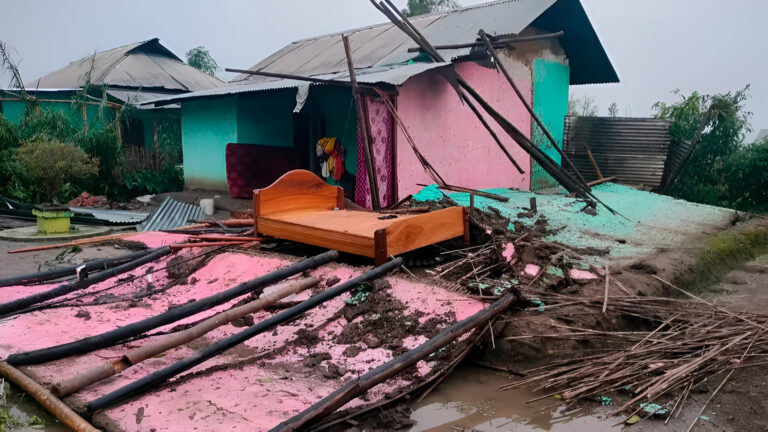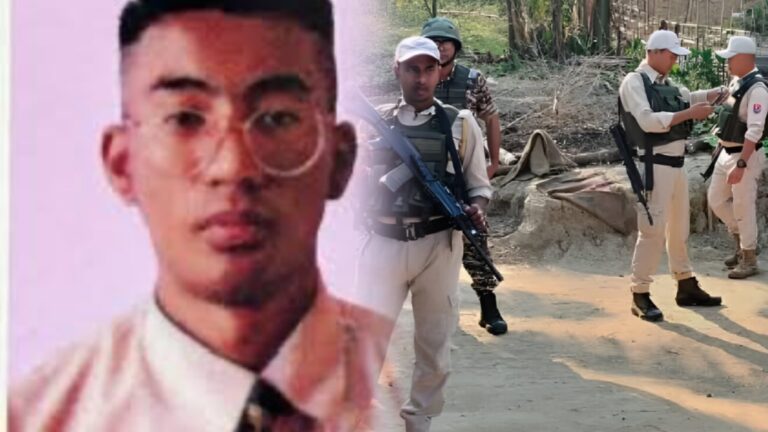Manipur Committee Denies Allegations of Monetary Involvement in Recent Student Agitation
Summary of the News
The Manipur Committee has denied accusations of financial involvement in the recent student-led protests. The protests, centered around educational and recruitment issues, were said to be manipulated for monetary gain, an allegation strongly dismissed by the committee. The situation remains tense as both sides look for peaceful resolutions.
Unraveling the Allegations and Denials: A Comprehensive Overview
The student protests in Manipur have stirred up significant controversy, not just for the issues at their core but also due to allegations of monetary involvement. These allegations have cast a shadow over the protests, painting them as financially motivated rather than genuinely focused on student concerns. However, the Manipur Committee, which has been accused of being involved in this controversy, has vehemently denied these claims.
This article will explore the different aspects of this unfolding situation, providing a detailed analysis of both the protests and the committee’s response to the allegations.
Understanding the Student Protests in Manipur
The recent student agitation in Manipur centers around several critical issues that have been plaguing the state’s educational sector. One of the central concerns is the recruitment process in educational institutions, which students argue lacks transparency and fairness. The protests have seen significant participation from students across the state, with demands for reforms that would make recruitment processes more equitable.
Why the Protests Erupted
Students in Manipur have been dissatisfied with the recruitment policies of the state’s educational institutions. They believe that there is rampant favoritism, nepotism, and corruption in the hiring process, making it difficult for deserving candidates to secure positions. The protests, which began as a call for reforms, gained momentum as more students joined in, hoping to shed light on the systemic issues they believe are harming the state’s education sector.
Allegations of Monetary Involvement: The Core Controversy
As the protests grew in size and intensity, allegations began to surface that monetary incentives were driving the agitation. These accusations, primarily directed at the Manipur Committee, suggest that the protests were being manipulated for financial gain, rather than being a genuine student movement focused on educational reform.
The Allegations in Detail
Critics of the student protests have alleged that outside forces, possibly political or financial, are fueling the unrest. Some have gone as far as to say that individuals within the Manipur Committee are financially benefiting from the chaos, using the protests as a means to further their own interests.
These accusations, if true, would significantly undermine the legitimacy of the protests, turning what appears to be a fight for fairness into a power struggle fueled by greed. The notion that students might be unwitting pawns in a larger financial game has caused many to view the protests with suspicion.
Manipur Committee’s Firm Denial
In response to these allegations, the Manipur Committee has issued a strong denial, stating that there is no monetary involvement in the protests. According to the committee, the accusations are baseless and are being used as a tactic to delegitimize the student movement.
Committee’s Defense: Standing by the Students
The committee has emphasized that the student protests are rooted in genuine grievances about the state’s educational system. They argue that the protests are driven by a desire for transparency and fairness in recruitment, not by any financial motives. The committee’s defense rests on the fact that students have long been dissatisfied with the current system, and the protests are a natural outgrowth of years of frustration.
They have also pointed out that similar protests have occurred in other parts of the country, where students have voiced concerns about recruitment policies and educational standards. To the committee, this suggests that the issues are systemic and not the result of any financial manipulation.
The Larger Implications for Manipur’s Educational System
The protests, regardless of the outcome of the allegations, have brought significant attention to the problems within Manipur’s educational system. The state’s institutions have long been accused of corruption and favoritism, with students feeling that merit is often overlooked in favor of personal connections.
What Needs to Change?
The protests have highlighted the need for comprehensive reforms in the state’s educational policies, particularly in the recruitment process. Students have called for more transparency, a merit-based system, and an end to nepotism. These demands, if met, could lead to a more equitable and just educational environment in Manipur.
However, the challenge lies in whether the state’s institutions are willing to implement these changes. With the protests showing no signs of slowing down, it remains to be seen how the government and educational authorities will respond.
The Role of Media and Public Perception
Media coverage of the protests and the allegations of monetary involvement have played a significant role in shaping public perception. Depending on the source, the protests are either seen as a genuine student movement or as a manipulated event driven by financial interests.
The Importance of Accurate Reporting
Accurate media coverage is crucial in situations like this, where misinformation can easily spread and undermine the legitimacy of a movement. In the case of the Manipur student protests, it is essential that journalists and news outlets provide balanced reporting that includes the perspectives of both the students and the committee.
The committee’s denial of the allegations should be taken seriously, and the media must ensure that these denials are given the same level of attention as the accusations. By doing so, the media can help foster a more informed and nuanced public understanding of the protests.
Looking Ahead: What Does the Future Hold for Manipur’s Students?
The student protests in Manipur have brought critical issues to the forefront, particularly the need for reforms in the state’s educational system. However, the controversy surrounding the protests has also raised questions about the legitimacy of the movement.
Will the Protests Lead to Meaningful Change?
One of the central questions is whether the protests will lead to meaningful change in the state’s recruitment policies. While the students have made their demands clear, the allegations of monetary involvement have complicated the situation. If the protests are seen as financially motivated, it could hinder the chances of achieving the reforms the students are calling for.
Dialogue as a Way Forward
The Manipur Committee has called for dialogue as a way to resolve the situation, and this may be the most effective approach. By sitting down with students and addressing their concerns directly, the committee and educational authorities can work together to implement the necessary reforms.
At the same time, it is crucial that the allegations of financial involvement are thoroughly investigated. If there is any truth to the claims, it could undermine the entire movement and discredit the students’ efforts. On the other hand, if the allegations are proven false, it could help restore trust in the movement and refocus attention on the real issues at hand.
FAQs
- What are the student protests in Manipur about?
- The protests are primarily focused on issues related to recruitment policies in the state’s educational institutions, which students argue are corrupt and unfair.
- What are the allegations of monetary involvement in the protests?
- Some have alleged that the protests are being financially manipulated, with individuals benefiting from the unrest. These allegations have been strongly denied by the Manipur Committee.
- How has the Manipur Committee responded to the allegations?
- The committee has denied any monetary involvement, calling the accusations baseless and emphasizing that the protests are rooted in genuine student grievances.
- What reforms are the students calling for?
- Students are demanding more transparency in the recruitment process, a merit-based system, and an end to nepotism and favoritism in educational institutions.
- What is the role of the media in this controversy?
- The media plays a crucial role in shaping public perception of the protests. Accurate and balanced reporting is essential to ensure that both the students’ grievances and the committee’s denials are given due consideration.





